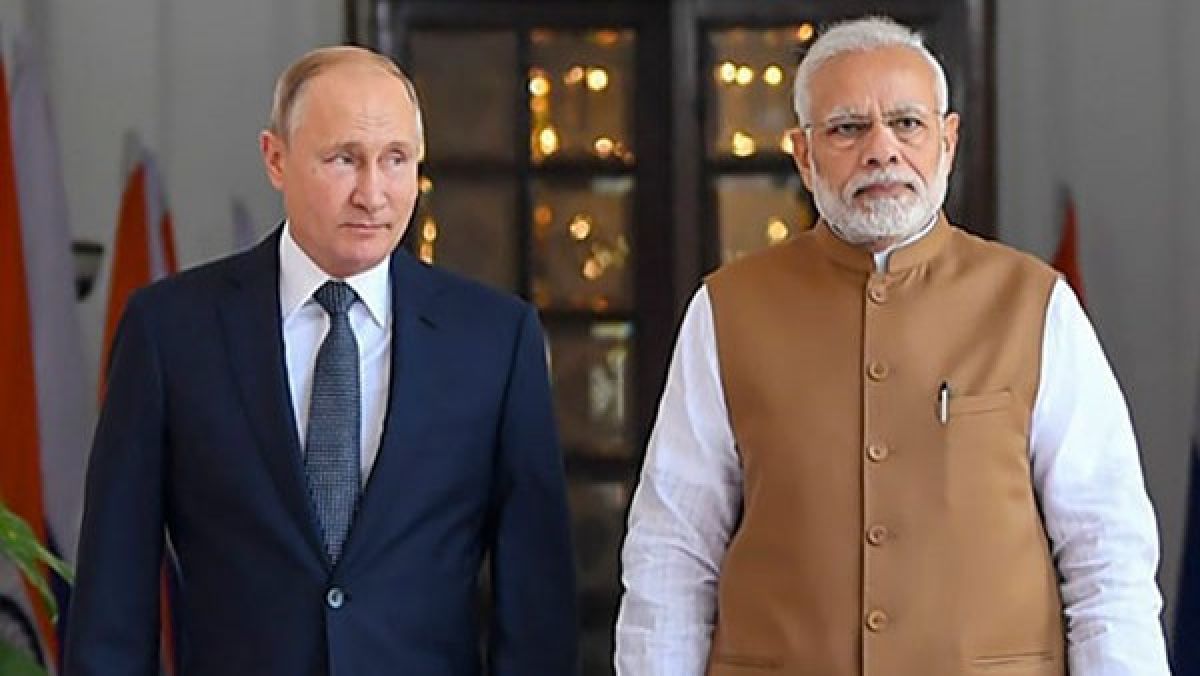
Russia and India: The basis for cooperation
By Andrey Sushentsov
The foundation of the Russian-Indian partnership is mutual respect for the uniqueness of the civilizations of the two countries. We recognise the unique nature of the civilizational choice of our peoples and recognise the value of the special path that our countries have chosen. This attitude is a decreasing value in modern world politics, which seeks to standardise and unify all approaches to the interaction of countries, presenting them as identical billiard balls, writes Valdai Club Programme Director Andrey Sushentsov.
Russian-Indian strategic cooperation has been successfully developing for many decades. The USSR was one of the key countries that provided assistance and support to the young Indian republic in its formative years. Over the years of development of bilateral relations, Moscow has made significant efforts to develop India’s economy, industrial sector and education system, and actively developed military-technical cooperation programmes. The first Indian cosmonaut was sent into orbit in a Soviet spacecraft. Russia and India to this day enjoy the results of many years of cooperation in various fields, including in the international political environment.
The foundation of the Russian-Indian partnership is mutual respect for the uniqueness of the civilizations of the two countries. We recognise the unique nature of the civilizational choice of our peoples and recognise the value of the special path that our countries have chosen. This attitude is a decreasing value in modern world politics, which seeks to standardise and unify all approaches to the interaction of countries, presenting them as identical billiard balls.
Moscow and New Delhi stand for strengthening national sovereignty and refusing to interfere in each other’s affairs. Russia and India also mutually respect the interests of their partner in international relations, recognise their legitimacy, and share an emphasis on equality in relations with each other and with other countries. This is especially important in an environment in which international relations are beginning to be determined by a narrow circle of countries that consider themselves to have the right to dictate their will. Finally, Moscow and New Delhi share a common interest in the formation of a polycentric system in international relations, in which the foundation of interaction is reliance on several large regional centres of power. In this context, Russia supports India’s bid for permanent membership in the UN Security Council and is actively cooperating with New Delhi through BRICS, exploring ways to strengthen this organisation.
Russia and India do not have major mutual problems with each other. This poses a certain difficulty, since the absence of such controversial issues also indicates a certain degree of mutual detachment. From the experience of developing complex relations between Russia and Turkey, Iran and China – large countries bordering Russia – we see that these bilateral interactions developed and were strengthened by overcoming major differences which varied in nature: economic, territorial, political and strategic. The process of overcoming these problems led to the establishment of strong bilateral relations between Moscow and Istanbul, Tehran and Beijing, which are resistant to external impulses. Currently, Russia and India do not have any major differences that need to be overcome, but this may remain a circumstance that will leave the two countries in a situation of mutual detachment. If the parties find the strength to recognise detachment as a problem in itself, this will be the first step towards overcoming it. It’s time to see in each other an opportunity to solve the problems facing the societies and elites of our countries at the international level.
Russia and India are strengthening each other in dialogue at multilateral platforms. Our common interest in the formation of polycentricity and the preservation of strategic autonomy and subjectivity in an international environment that is constantly becoming denser, as well as our intentions not to yield to the pressure of external forces that call for the channelling of foreign policy strategy in a direction beneficial to them, should unite our countries.
To explore the potential of bilateral relations between Moscow and New Delhi, it is necessary to make this area of foreign policy a high priority by creating a national office for India in Russia and for Russia in India, respectively, at the level of the Deputy Prime Minister of the federal government. This kind of organisational step will indicate not only the strategic nature of bilateral relations, but will also formulate a target task at the state level to vigorously search for ways and means of strengthening interaction that can bring our cooperation to a truly strategic level in the 21st century.
This article originally appeared at valdaiclub.com
